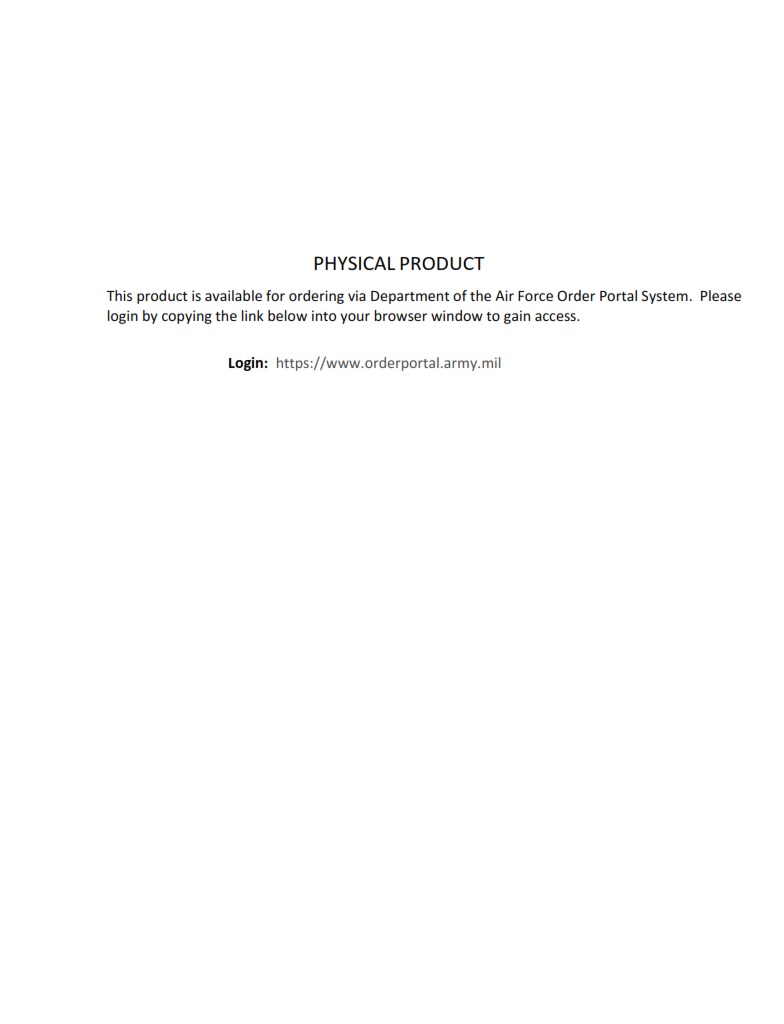AF-FORMS.COM – AF Form 2140A – Health Record – Outpatient (Tan) (For use by USAF Medical Treatment Facilities ONLY) – Have you ever wondered what lies within those mysterious medical files, tucked away in the depths of military treatment facilities? The AF Form 2140A – Health Record – Outpatient (Tan) holds the answers. This unassuming document is more than just a collection of numbers and letters; it is a treasure trove of your health journey as an Air Force member. From routine check-ups to battle scars earned in service, this form encapsulates your entire medical history. Join us on a deep dive into this crucial record, as we unravel its significance and reveal how it impacts your well-being.
Imagine having access to a secret manual that encompasses every detail of your physical well-being throughout your Air Force career. Well, that’s exactly what lies within the seemingly mundane pages of AF Form 2140A – Health Record – Outpatient (Tan). This humble yet powerful document holds vital information about preventive care, past treatments, and even potential red flags for future health issues. By understanding this enigmatic form and harnessing its potential, you can take charge of your own health maintenance like never before. Prepare to unravel the mysteries behind this exclusive key to comprehensive healthcare within USAF Medical Treatment Facilities!
Download AF Form 2140A – Health Record – Outpatient (Tan) (For use by USAF Medical Treatment Facilities ONLY)
| Form Number | AF Form 2140A |
| Form Title | Health Record – Outpatient (Tan) (For use by USAF Medical Treatment Facilities ONLY) |
| Edition Date | 7/1/2004 |
| File Size | 278 KB |
What is an AF Form 2140A?
The AF Form 2140A, also known as the Health Record – Outpatient (Tan), is a unique document used exclusively by USAF Medical Treatment Facilities. This form plays a crucial role in documenting and managing the health records of Air Force personnel who receive outpatient medical care. It contains essential information such as patient demographics, appointment dates, treatment plans, and diagnostic results.
One of the significant advantages of using AF Form 2140A is that it provides a standardized format for documenting outpatient encounters. This uniformity allows healthcare providers to easily navigate through the document while ensuring accurate data entry. Moreover, this form supports continuity of care by enabling different providers to access and review a patient’s medical history quickly.
In addition to its functionality within medical facilities, AF Form 2140A also has an administrative utility. Military leadership can use this form to monitor the utilization of healthcare resources, manage appointment scheduling efficiently, and assess overall healthcare service quality within their units. By leveraging the data captured in these forms, decision-makers can identify trends or areas that require improvement and make informed decisions about resource allocation.
In summary, the AF Form 2140A serves as an indispensable tool for USAF Medical Treatment Facilities in managing outpatient health records effectively. Its standardized format ensures accurate documentation of patient encounters while facilitating continuity of care across diverse provider teams. Additionally, this form enables military leaders to analyze healthcare service utilization and make strategic decisions regarding resource allocation for enhanced efficiency and quality assurance.
Where Can I Find an AF Form 2140A?
If you’re an active duty member of the United States Air Force or a retired Air Force veteran, you may be familiar with the AF Form 2140A. This form is specifically designed for USAF Medical Treatment Facilities and serves as an outpatient health record. It contains vital information about your medical history, including diagnoses, treatments, and vaccination records.
To obtain an AF Form 2140A, your first step is to contact the nearest USAF Medical Treatment Facility. These facilities are located on various Air Force bases around the country and provide comprehensive medical care to active-duty members and their families. Once you have identified the closest facility to you, reach out to their medical records department for guidance on obtaining this specific form.
It’s important to note that this form is exclusive to USAF Medical Treatment Facilities and can only be accessed by authorized personnel. Therefore, it cannot be found or obtained through public channels like government websites or commercial vendors. If you need a copy of your AF Form 2140A for any reason, contacting your local military treatment facility will ensure that you receive accurate guidance on how to obtain it.
AF Form 2140A – Health Record – Outpatient (Tan) (For use by USAF Medical Treatment Facilities ONLY)
The AF Form 2140A, also known as the Health Record – Outpatient (Tan), is an essential document used exclusively by USAF Medical Treatment Facilities. This medical record form contains crucial information regarding outpatient medical encounters and serves as a comprehensive overview of a patient’s health history and ongoing treatment. By utilizing this standardized form, healthcare professionals can efficiently manage patient care, track diagnoses, and treatments, and ensure continuity of care.
One significant advantage of using the AF Form 2140A is that it allows for seamless coordination among different medical treatment facilities within the United States Air Force. As military personnel often move around to different bases or assignments, having a consistent health record that travels with them ensures that vital information does not get lost along the way. This smooth transition aids in better-serving patients by enabling healthcare providers to assess their conditions accurately and make well-informed decisions about their ongoing care.
Moreover, the AF Form 2140A plays a critical role in supporting evidence-based medicine within the Air Force healthcare system. By maintaining detailed records of each outpatient encounter, healthcare providers can identify trends, patterns, and potential areas for improvement in patient care. This rich dataset proves invaluable when conducting research studies or audits aimed at enhancing medical protocols or developing tailored treatment options for specific conditions prevalent among service members.
